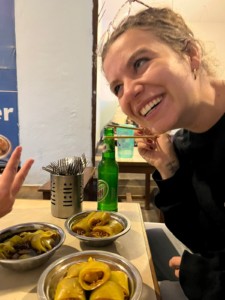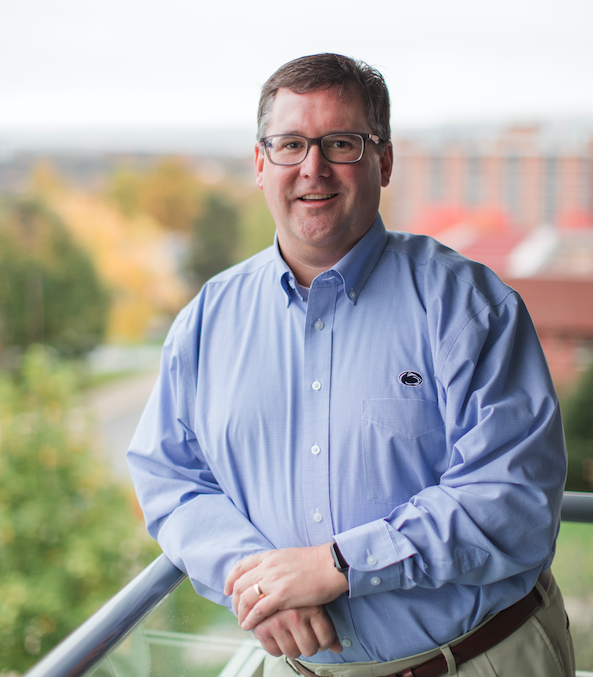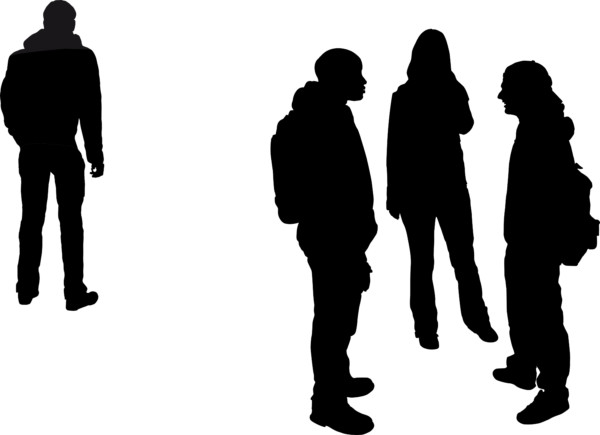It was 10pm in Kathmandu when Rachael began to tell her story. I know some things about her. She is a disaster engineer, a Fulbright awardee, and PhD candidate at Duke University. She went to Duke on an academic scholarship, was a Division 1 athlete, and was a “grand challenge” research scholar. She is 24 years old.
What I did not know, but would soon learn, is that Rachael was diagnosed with ADHD in graduate school after years of panic attacks before exams; that she felt everyone around her was smarter than she was; and that she is now continuing her own brave and often painful journey of personal growth that began when she entered college.
“I came to Duke in 2016 as a student athlete. I was pre-med – a biomedical engineering major. I am none of those things now,” she said.
Rachael’s first year of college was not easy. “I, like a lot of students, began to process things that had happened in my life because I was finally in a space that was open enough for me to be alone with myself, for better or worse, if that makes sense. The biggest part of growing up is reconciling your past. For some people that’s easy. For others it’s a long and difficult process we never stop doing.”

Rachel Lau
Her role as an athlete on Duke’s track and cross-country teams brought familiar pressure. She had competed all her life, first as a dancer and then as a runner. Her countless awards came with an eating disorder in middle school that contributed to delayed puberty. For Rachael, the achievement of being admitted to Duke was quickly chased by the need for academic success, but it would allude her throughout nearly her four years as an undergraduate.
“I was really struggling. I would sit in those lecture halls and they would be talking but I wasn’t processing the knowledge at all. I’d write things down and when I looked at it again, my eyes just glazed over.”
She didn’t know then that she had ADHD. All she knew was that she felt that she tried 10 times harder than her peers and could never keep up. She nearly failed a number of courses. “I felt like I started every test 30 meters behind the starting line. It was a horrible, isolating experience,” she said.
The panic attacks that came on before tests became chronic. When she began passing out from stress, she quit athletics. Abandoning her identity as a D1 athlete would be one more painful part of the reconciliation process where childhood pressure to succeed, no matter how well-intentioned, would obviate any cry for help.
Still, she does not seem bitter.
“My parents did the best they could with the tools they had,” she said.
Discouraged by her grades, Rachael’s default mode was to excel in other areas so she became proficient in extracurriculars. She was the president of several clubs. She started a magazine on mental health. She went to China twice to study air and water quality. She spent a summer in Madagascar working on a gravity water pipeline.
“I needed to see it (success) on paper. If I didn’t see it in my grade report, I needed to see it in my CV. I did not feel like I deserved to be in the spaces I was in.” Rachael now says she is grateful for that drive, even while acknowledging the tough place it comes from. “Falling is not an option when you have no net,” she said.
“The biggest part of growing up is reconciling your past. For some people that’s easy. For others it’s a long and difficult process we never stop doing.”
Later in college and then in graduate school, several factors came together that would allow Rachael to strive for new heights without that terrifying threat. As an engineering major, her course work eventually involved more projects and less tests, which was a breakthrough for her as a student. “It wasn’t until I stopped taking tests that I actually knew the content. When I had project-based courses and had to design things, I was great at it. I was like ‘Wow, I’m not so dumb after all.’”
In graduate school at Duke, Rachael fought hard to have a psychological evaluation even though she lacked the funds for it. She was eventually tested pro-bono for a variety of learning differences, including ADHD. “When I was diagnosed, it took away the shame and that was a gamechanger for me because as soon as that happened, I could talk about my struggles. This was not my fault.”
As a graduate student, Rachael worked as a graduate resident in the undergraduate dorms. Her favorite part of the job was helping other students become vulnerable enough to open up to her about their problems, even as she herself struggled to do so. She held coffee hours where younger students would linger, playing with her cat, often sharing the same isolation and fear Rachael felt as an undergrad.
“Students are nervous about opening up because it’s like picking a scab and that hurts. But I would tell them the more often we’re able to step up and be honest about who we are and what we’ve been through, the world becomes a more interesting place and we learn we are not so different. We feel a little less isolated.”
Therapy has helped Rachael with her own journey. She talked of her experience as being three-pronged. “For me, it was about agency, vulnerability, and acceptance. Agency gave me control; vulnerability gave me bravery; and acceptance made me feel seen.”
Nepal is a special place for Rachael who has returned to Kathmandu to run a lab she had previously designed as an undergraduate while she works on her PhD in civil and environmental engineering. She told me she has taken up running again but is most fulfilled by her new sport, eastern style mixed martial arts which, she said, is “fluid and intentional.” She seemed happy and calm, if not exhausted, as our conversation wound down. Given all of her achievements, I asked her what she will do when she receives her PhD. First, she joked that she will insist on being called Doctor Lau. “Are you kidding me? I sound like a super villain.”
She then alluded to a Japanese phrase called Ikigai which is found at the intersection of what you love, what you are good at, what the world needs, and what you can be paid for. Through this prism, she said, she will find her vocation. For now, she is focused on disaster response work.
“Disaster is one of the most universally dehumanizing experiences a person ever goes through. Yet, it’s also the most human we will ever be. Contributing to uplifting the voices of those who are being stripped of their dignity is something I’ve always loved. Engineering gave me something that I could be good at, and now more than ever, we need appropriate disaster response mechanisms focused on preservation of human dignity.”
I suspect Rachael Lau is very good at many things she may not be giving herself credit for, including having a beautiful way of moving through the world. I asked her what she hopes people will learn from her story. “We should always try to look at someone with a blank slate, as a canvas, and let them paint their picture,” she said. “And then we can really see them. If we truly seek to understand each other, we might just learn something about ourselves.”




